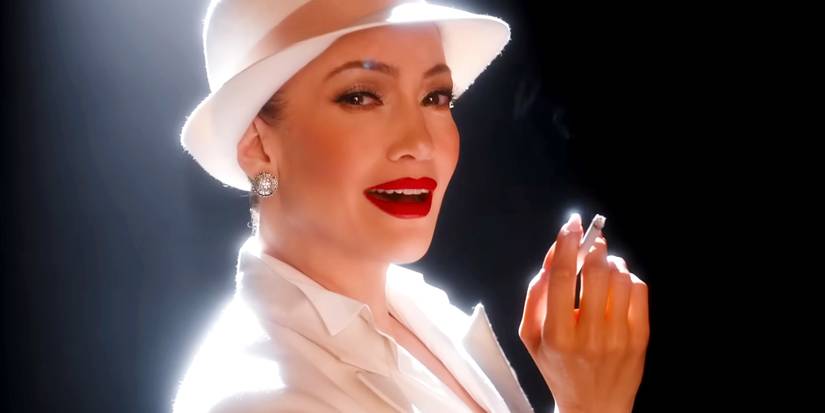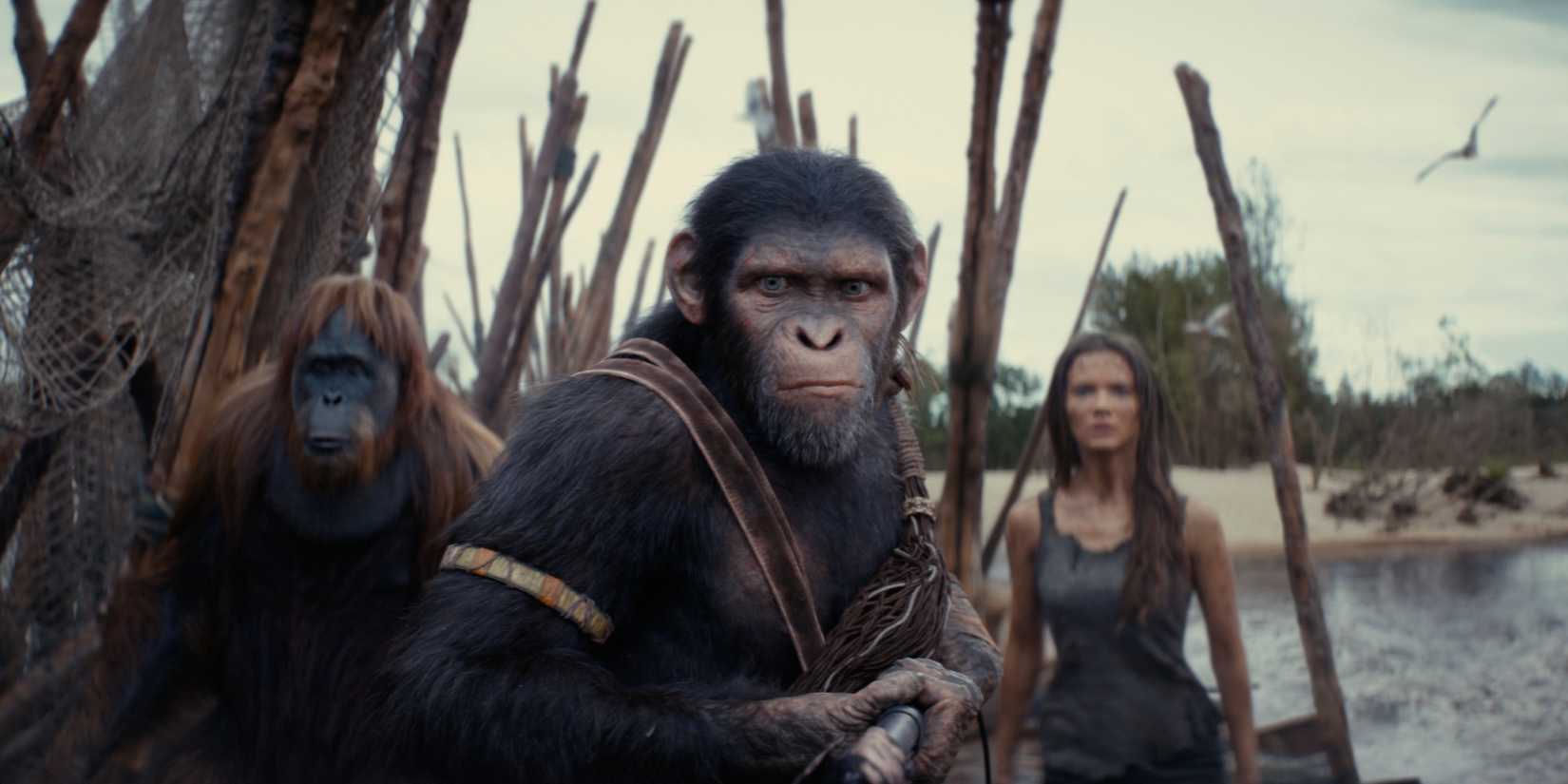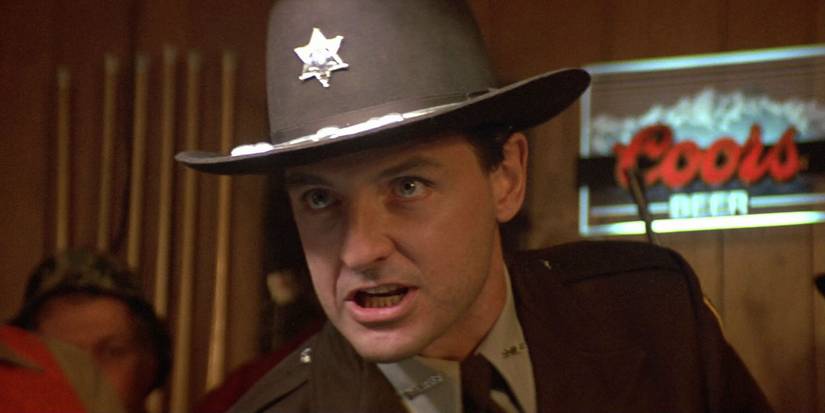The Academy Awards are intended to represent the pinnacle of filmmaking for each year, but some Oscar wins have aged poorly. Whether it’s undeserving films coming out ahead of movies later deemed undisputed classics or releases that now feel totally out of step with contemporary values, not all wins stand the test of time.
The most disappointing Oscar wins ever have truly left their mark on Hollywood history and still feel raw even decades later. While every actor and filmmaker who took home an Academy Award should be proud of their achievement, it’s impossible not to look back on some of these wins and wonder what the Academy’s voting members were thinking.
Driving Miss Daisy (1989)
Best Picture
The Best Picture category is one of the most contentious of all the Academy Awards, as it forever cements a movie’s place in film history. That’s why it’s so disappointing to look back at Driving Miss Daisy’s win, as it represents a safe, sentimental choice that felt like a slap in the face toward Spike Lee’s Do the Right Thing.
While Driving Miss Daisy explored racism, it did so superficially, avoiding the deeper systemic issues at its core. In contrast, Spike Lee’s Do the Right Thing tackled those themes head-on with lasting power and urgency. Decades later, in 2019, the Academy repeated the mistake by awarding the equally sentimental Green Book over the more challenging Lee film BlacKkKlansman.
Ordinary People (1980)
Best Picture
Hollywood legend Robert Redford made the jump into directing with the Best Picture-winning family drama Ordinary People. This story about a wealthy family in crisis after one of their sons dies in an accident and the other attempts suicide was powerful; however, the Oscar has aged poorly due to the sheer caliber of films it was competing against.
The year 1980 was a fantastic time for films, and, looking back, it’s clear that other nominees like David Lynch’s The Elephant Man and Martin Scorsese’s Raging Bull were far more deserving of the award. Redford proved himself a competent director with Ordinary People, but it just can’t live up to the legacy of those masterpieces.
Kevin Spacey For American Beauty (1999)
Best Actor
Few films have aged more poorly than American Beauty, whose behind-the-scenes circumstances make the film highly uncomfortable in hindsight. As an Oscar-winning triumph, this Sam Mendes hit took home five Academy Awards, including Best Picture, Best Director, Best Actor, Best Original Screenplay, and Best Cinematography.
With so many accolades to its name, it’s Kevin Spacey’s Best Actor win that has aged the poorest, as his portrayal of a man fantasizing about his daughter’s teenage friend feels especially creepy given the litany of Sєxual abuse allegations targeted at the actor in the years since. It’s hard to rewatch American Beauty without Spacey’s legacy in mind.
Rami Malek For Bohemian Rhapsody (2018)
Best Actor
The success of the music biopic Bohemian Rhapsody is one of the most contentious of recent years, as many bemoan that this by-the-numbers account of Queen’s meteoric rise to fame played out more like a Wikipedia entry than a compelling film. While actor Rami Malek did a great job capturing Freddie Mercury’s mannerisms and stage presence, the performance lacked true depth.
The biggest reason that Malek’s Oscar win has aged poorly is that it’s abundantly clear that Bohemian Rhapsody skirted around the complexities of Mercury’s life story and downplayed his Sєxuality and AIDS diagnosis. A Best Actor win is supposed to represent something extraordinary, while Malek’s performance was merely fine.
Out of Africa (1985)
Best Picture
As a romanticized portrayal of colonialism in Africa, Sydney Pollack’s Out of Africa has aged poorly, and its standing as a Best Picture winner seems inappropriate. As a sweeping love story between Meryl Streep and Robert Redford set against a backdrop of questionable racial and cultural insensitivities, the film feels out of step with contemporary values today.
Out of Africa’s Best Picture win came the same year as Steven Spielberg’s far more complex exploration of racism in The Color Purple and Héctor Babenco’s account of military dictatorship in Kiss of the Spider Woman. In hindsight, it’s clear these two films had far more to say than Pollack’s film, which simply glossed over the complexities of imperialism.
Gwyneth Paltrow For Shakespeare In Love (1998)
Best Actress
Shakespeare in Love was a smash success at the Academy Awards, taking home seven out of the 13 Oscars for which it was nominated. As a Best Picture winner and recipient of the Best Actress award for Gwyneth Paltrow, this fictional exploration of William Shakespeare’s affair while writing Romeo & Juliet has aged poorly.
While the film itself isn’t up to the caliber of a sweeping Oscar success, the behind-the-scenes circumstances of Shakespeare in Love make its awards even more questionable. That’s because convicted Sєx offender and film producer Harvey Weinstein staged an aggressive Oscar campaign, leading many to believe the awards had more to do with his pull in Hollywood than genuine acclaim.
Cuba Gooding Jr. In Jerry Maguire (1996)
Best Supporting Actor
Jerry Maguire has gone down in film history as one of the most quotable movies of the 1990s and a genuine romantic classic. With Tom Cruise deservedly nominated for Best Actor for his fantastic performance as the тιтle character, it’s Cuba Gooding Jr.’s win for Best Supporting Actor that leaves us scratching our heads.
In a movie full of great performances, Gooding was the weak link, and his unextraordinary career in the years since makes this feel like one of the most squandered awards in Oscar history. It’s harsh, but it’s true. Gooding didn’t deserve to win, and the award should have gone to Edward Norton in Primal Fear or William H. Macy in Fargo.
Sandra Bullock In The Blind Side (2009)
Best Actress
Sandra Bullock took home the Best Actress Oscar for her role in The Blind Side, despite the film being notoriously unremarkable. As a sports drama about a football player rising out of his impoverished circumstances to excel in the NFL, Bullock’s role as the adoptive mother, Leigh Anne Tuohy, was enjoyable but lacked the depth of a Best Actress win.
Even if Bullock’s role has aged poorly, her sense of humor certainly hasn’t, as she stands as the only actress to win a Razzie and an Oscar in the same year. Bullock hilariously even attended the Razzie ceremony the night before her Academy Award win, where she accepted the award for her maligned performance in All About Steve.
Crash (2005)
Best Picture
Out of every badly aged Best Picture win, none can compare to the upset that was Crash’s victory over Brokeback Mountain in 2006. As a crime drama that reduced its core theme of racism to a series of coincidental encounters and personal prejudices, looking back, it’s really difficult to see what the Academy saw in this simplistic and unsubtle piece of work.
By contrast, Ang Lee’s Brokeback Mountain was a deeply challenging exploration of LGBTQ+, entrenched homophobia, and toxic masculinity that broke down major boundaries in Hollywood. Even director Paul Haggis agrees that Crash didn’t deserve Best Picture and said in a 2015 interview with Hitfix, “Was it the best film of the year? I don’t think so.”
Al Pacino For Scent Of A Woman (1992)
Best Actor
Al Pacino is one of Hollywood’s greatest actors, earning acclaim for The Godfather and Glengarry Glen Ross. Yet the one time he actually won an Oscar, it was clear the award was misplaced, as Pacino’s Scent of a Woman victory came at the expense of Denzel Washington’s powerhouse performance in Malcolm X.
As one of Pacino’s most showy and over-the-top performances, his role as blind, bitter retired colonel Frank Slade was entertaining but lacked the gravitas of Washington’s career-best performance in Malcolm X. Time has not been kind to this Oscar win, and it’s clear that Washington was snubbed in favor of appeasing an overdue narrative.


.JPG?q=49&fit=crop&w=825&dpr=2)












